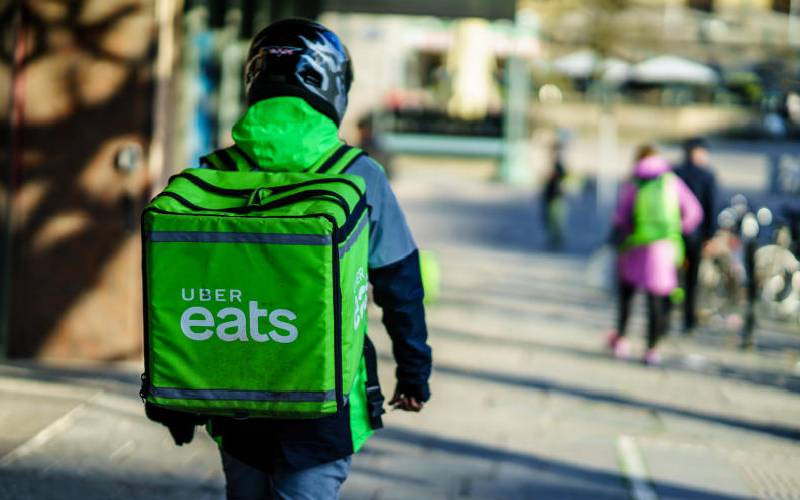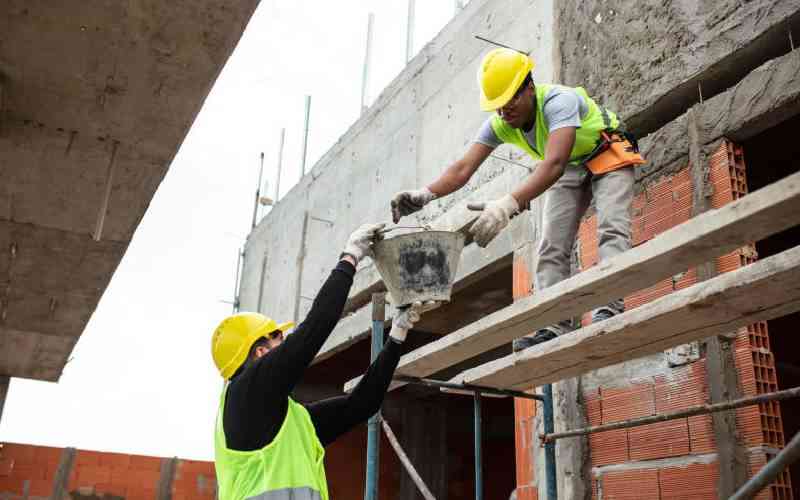
In a strategic move to strengthen his political base, President William Ruto has distanced himself from the “hustler versus dynasty” narrative that propelled him to power in the 2022 elections, instead crafting a new one.
Following his recent handshake with opposition leader Raila Odinga and retired President Uhuru Kenyatta, Ruto is redefining his identity, positioning himself as a steadfast champion of Kenya’s most vulnerable citizens.
This shift comes at a time when the country’s faces mounting economic challenges, particularly for the middle class, exacerbated by rising taxes, political instability, and a ballooning cost of living. While the middle class and affluent business community feel the strain of these policies, Ruto’s outreach to marginalized groups could be a strategic move to secure his long-term political survival.
“Through targeted initiatives, such as cash transfers benefitting more than 133,000 households and the Equalization Fund aimed at reducing regional inequalities, we are driving sustainable growth and empowering communities,” Ruto has said.
Central to Ruto’s new direction is his commitment to empowering boda boda riders, small-scale traders (mama mboga), construction workers and unemployed youth. This comes in the wake of nationwide protests triggered by claims of rampant corruption within the Kenya Kwanza administration and human rights violations.
Ruto’s shift in approach is evident in his speeches, policies and direct initiatives, where he seeks to reclaim a wider voting block that he targeted and won over during his hustler narrative during the 2022 elections. He is now positioning his administration as the protector of those who have long been neglected.
Over taxation
However, his focus on vulnerable groups is stirring discontent in the middle class and business elites, who are increasingly burdened by over-taxation.
They argue that the tax system seems to prioritize the needs of the poor, leaving the business community in a precarious position. The economic strain on Kenya’s middle class is growing, with new statutory deductions such as the Social Health Insurance Fund (SHIF), the housing levy and an increase in PAYE taxes.
Development economist Patrick Muinde noted that the government is taxing and levying on gross income, adding that high taxes disrupts spending, which is necessary for driving economic growth.
He explained that the overall impact of higher taxes and levies is a reduction in net household income, forcing people to cut back of consumer spending, which negatively affects businesses and services. Muinde added that these taxes and levies also reduce returns, eat into operating costs and force businesses to cut costs by retrenching workers or freezing employment, move that affects President Ruto’s economic agenda.
“Someone has to absorb these costs, which is why we are seeing some companies relocating to neighbouring countries or why new investors no longer view Kenya as a priority,” he noted.
The housing levy, he added, offers little value to individuals who may not need the houses being built, while the jobs created the project are short term and unsustainable.
Muinde noted that the housing levy creates casual jobs, temporary jobs and that are unsustainable despite promises of opportunities for the lower masses.
“If the houses were truly affordable and there was genuine demand, as the president claimed, we would see people rushing to buy them. Instead, we see the government looking for agents to sell them. Was there really demand for the houses? This raises questions about the policy and the thinking behind it,” Muinde said.
Stay informed. Subscribe to our newsletter
Affordable housing
He also questioned, “How many people can realistically afford to buy these houses?” Muinde outlined several concerns, stating that while contractors may be paid and move on, taxpayers have had deductions made, and the government is investing funds—raising the risk that citizens could ultimately lose out.
A professional middle class earning Sh500,000 now loses over Sh161,000 to these levies, a heavy burden that continues to increase. Amidst inflation, high unemployment, and diminishing purchasing power, this pressure is unsustainable. Ruto himself has emphasized the importance of healthcare for all Kenyans, saying, “No Kenyan, regardless of their financial status, will be denied medical treatment.”
SHIF, the highest salary deduction since Kenya’s independence, has raised alarm, particularly among high-income earners and businesses. Those earning Sh100,000 now pay Sh2,750, far exceeding the previous NHIF cap of Sh1,700. Many businesses are downsizing or exiting the Kenyan market due to high taxes, weak governance, and political instability.
Speaking on a local radio station in October, Nyatike MP Tom Odege, also the Secretary General of the Union of Kenya Civil Servants, said with the implementation of the new SHIF deductions, workers are now losing up to 40 percent of their income to taxes and statutory deductions that fail to benefit them directly.
“Working in Kenya has become unbearable. Workers are losing over 40 per cent of their income to taxation and statutory deductions, making it very difficult to operate and meet your normal expenditure,” he said.
Nandi Senator Samson Cherargei claimed President Ruto has done more for Kenya in the last two years than Kenyatta, Moi, Kibaki, and Uhuru combined. This includes hiring 76,000 JSS teachers, registering 15.6 million Kenyans under Taifa Care (SHA/SHIF), disbursing Sh60 billion for the Hustler Fund, subsidizing fertilizer, and reducing the cost of living, all projects targeting the lower masses.
“With the reduction of fuel prices, matatus, buses, and Passenger Service Vehicles (PSVs) should equally reduce their fare prices to reflect the lower fuel prices. Failure to do so should result in a crackdown on non-compliant PSVs,” he said.
Understands their struggles
But for all of Ruto’s populist measures, his approach remains risky. The “bottom-up” economic model, designed to uplift low-income earners, is sidelining Kenya’s middle class and business community which is fomenting a backlash.
Reports from the Parliamentary Budget Office (PBO) show that the bottom-up economic model is underperforming. Initially promised to create jobs and stimulate business growth, the model’s effectiveness is being questioned as the government continues to introduce new levies without a clear path to increasing revenue.
“Future tax policies must consider ripple effects to avoid undermining revenue collection,” the report advises, suggesting that an alternative approach to revenue generation may be needed to avoid straining taxpayers further.
Ruto’s focus on the vulnerable is also evident in his efforts to curtail exploitation by digital lenders. Many informal sector workers have long been burdened by predatory lending practices. Recently, three key laws—the Tax Laws (Amendment) Bill, the Tax Procedures (Amendment) Bill, and the Business Laws (Amendment)— signed into law on December 4, are designed to protect vulnerable groups from unfair lending practices and increase consumer protection.
Ruto’s broader vision for empowerment and growth extends beyond immediate relief to include long-term job creation, especially in agriculture and infrastructure. Over 243,000 jobs have been created, and more than 12,000 Kenyans have secured international job opportunities, which Ruto views as essential for a country struggling with high unemployment.
Labour Cabinet Secretary Alfred Mutua has been on a recruitment spree for what he has described as placing Kenyans with basic skills on jobs abroad in the Middle East.
SHA programme
His administration has promoted the SHA programme as a lifeline for the vulnerable, launching the Taifa Care initiative, which has enrolled over 11 million Kenyans under the Social Health Insurance Fund.
“We don’t want cases where someone with a serious illness like diabetes is turned away to die because they lack money—it’s inhumane. We want everyone to register, so we can identify who can afford to pay and assist those who can’t,” Ruto said about SHA.
The initiative seeks to provide affordable healthcare for all, ensuring even the poorest citizens can access treatment.
In parallel, the president has engaged directly with the public to champion his new agenda despite mounting criticism from mainstream churches, including the Catholic Church.







